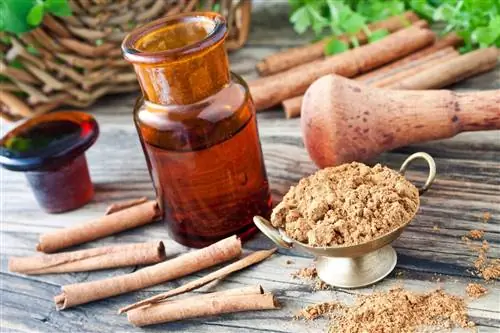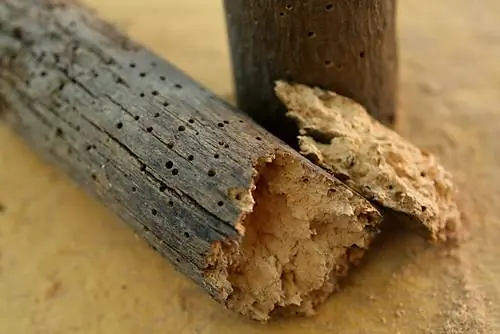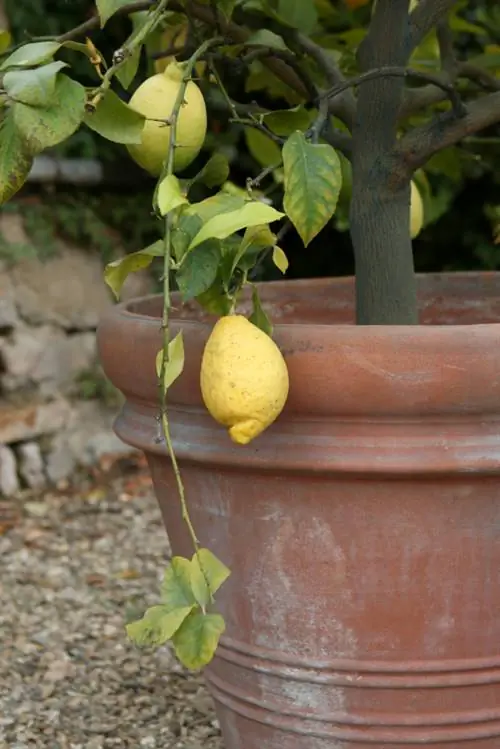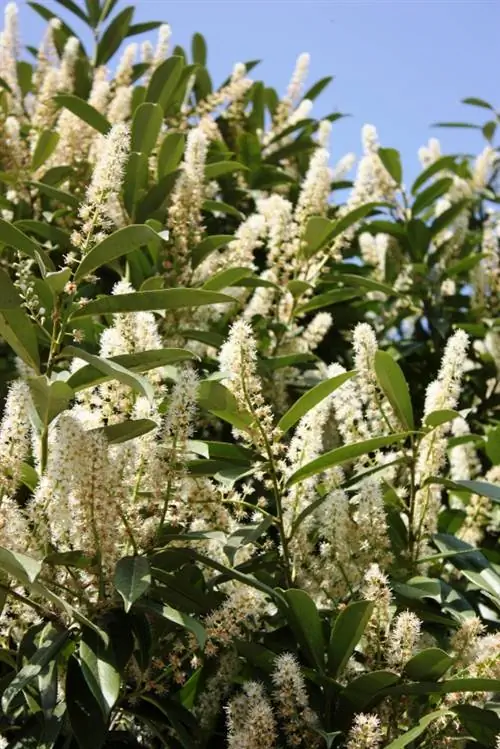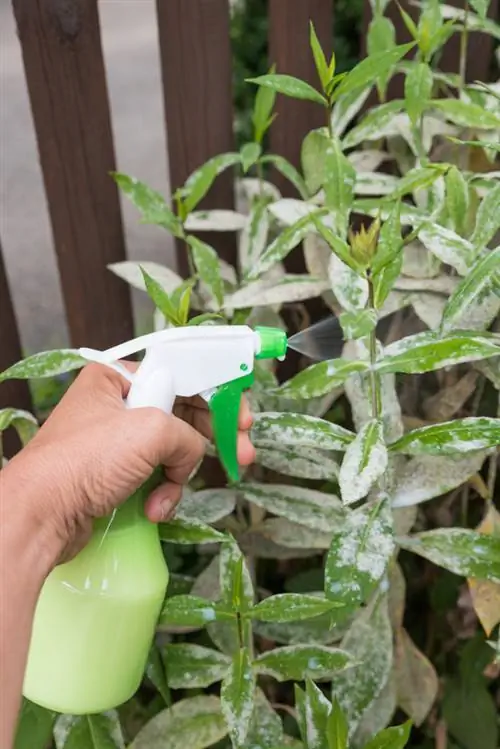- Author admin leonars@hobbygardeners.com.
- Public 2024-01-05 20:48.
- Last modified 2025-01-23 11:22.
Many people know cinnamon from the kitchen for Christmas cookies. But the spice can do much more. If used correctly, you will receive an effective plant protection product against fungi and pests on your plants.

Does cinnamon work against mildew?
Cinnamoncontains several substances that act against fungal infestation such as mildew. Cinnamon oil is particularly valuable as a plant protection agent, with its high content of cinnamaldehyde and eugenol. These prevent further growth of the fungi and fight the mycelium.
How do I use cinnamon against mildew?
For use against mildew fungiscald one tablespoon of cinnamon with five liters of boiling water. Mix the solution well with the mixer and then let it steep for a few hours. You can then pour the solution into a squirt bottle. This is used to treat the affected plants against powdery mildew. To combat mildew fungi that overwinter on the ground, you can also sprinkle cinnamon thinly on the ground as a powder.
What do I have to consider when using cinnamon against mildew?
The active ingredients cinnamaldehyde and eugenol arehardly soluble in waterTherefore the solution contains a lower proportion of active ingredients. When spraying, ensure that the powder is well wetted. For effective control, you should spray your plants with it several times. A good alternative is to use cinnamon oil. This is diluted with water in a ratio of 1:5 to 1:10 and then used as a spray solution. Due to the higher active ingredient content in the oil, one application is usually enough.
Tip
Attention: some plants cannot tolerate cinnamon
Some plants are prevented from growing by cinnamon. These include cress and tomatoes. Therefore, use cinnamon sparingly in the garden.

